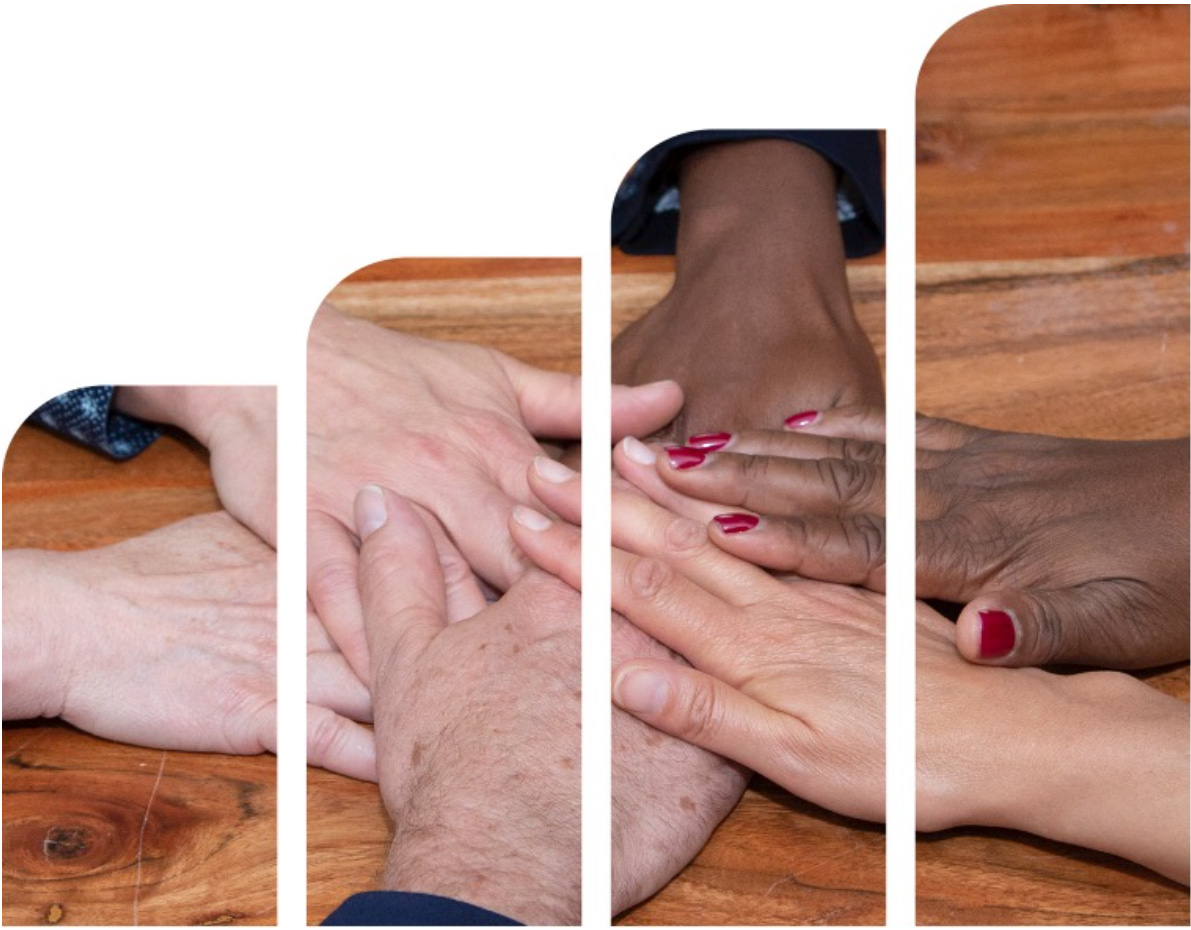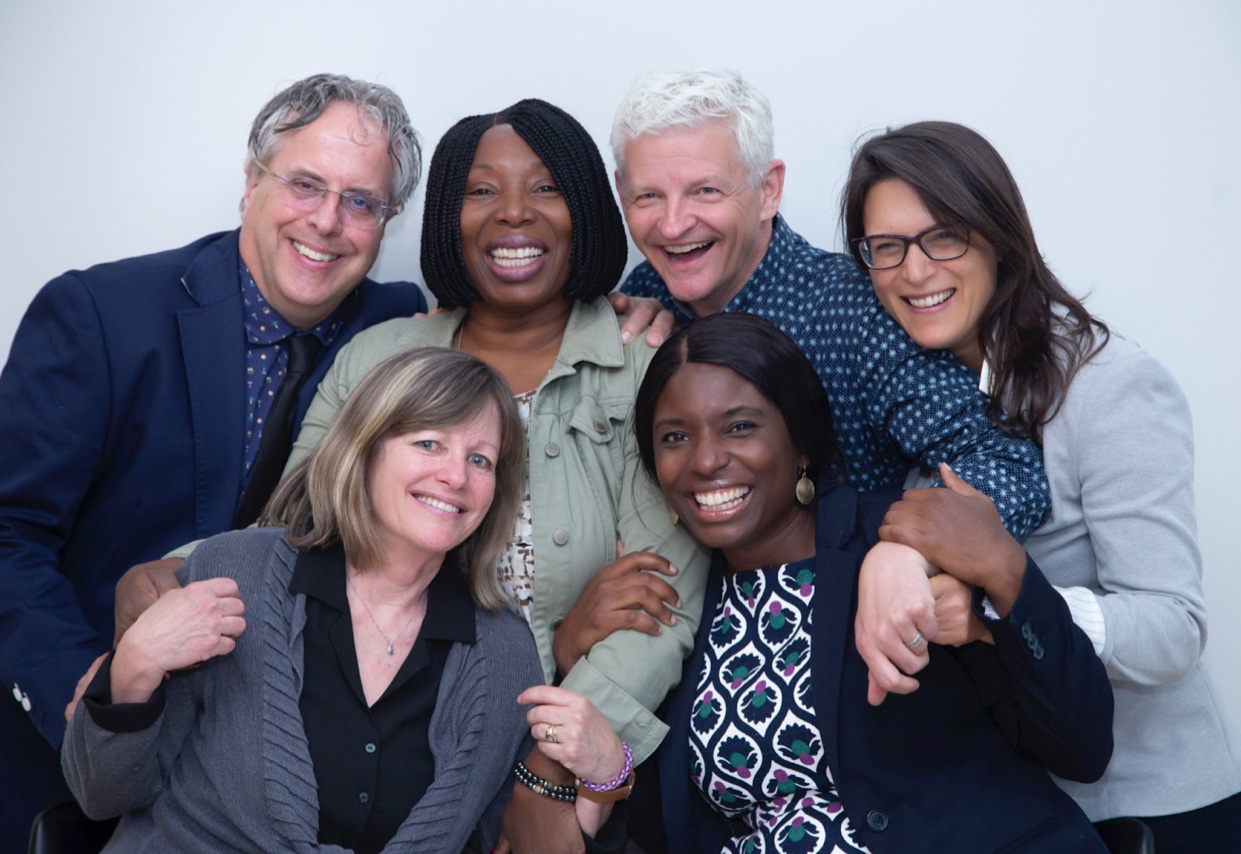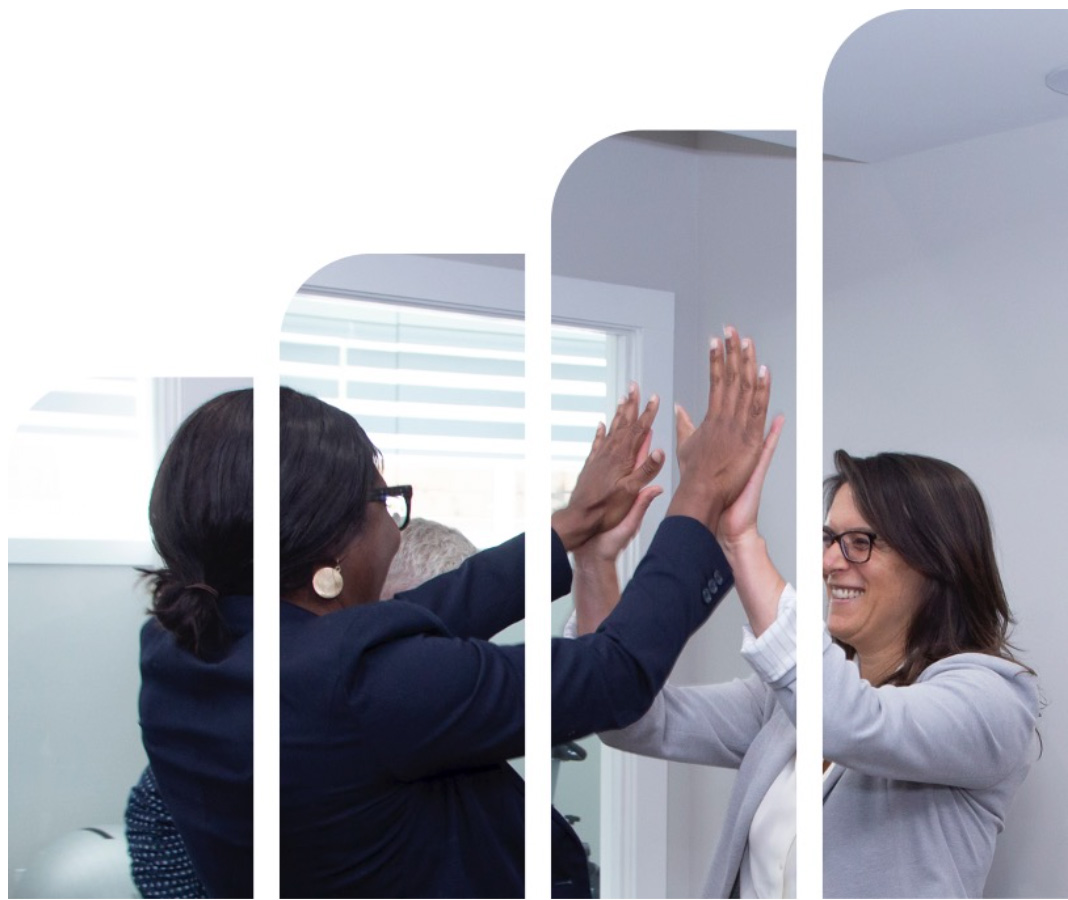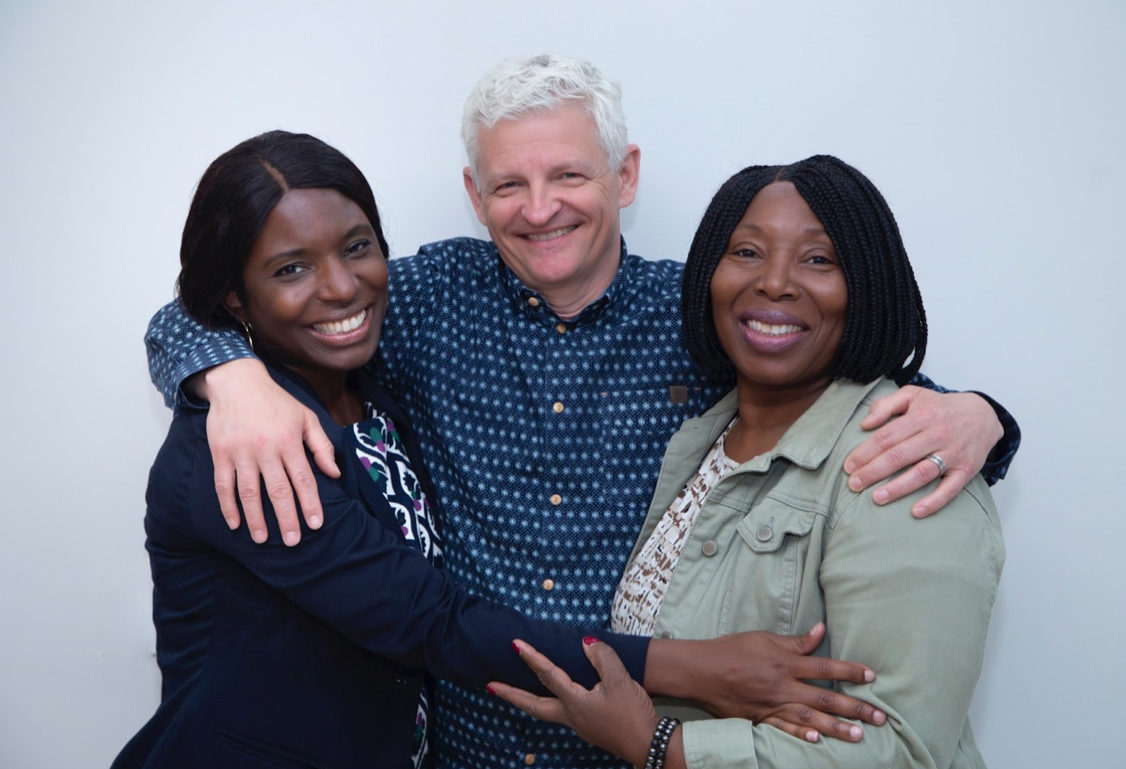2022 Annual Report
Building a Strong Foundation

“We are proud to share this annual report which highlights many of our important milestones this fiscal year as we’ve been building a strong foundation for the future.”
Strategic Priorities
Live our principles
Establish a culture where our SC2.0 principles are embedded in everything we do and how we interact and engage with others.
Expand reach and impact of the SC2.0 model
Partner with an expanded set of organisations and communities to broaden SCS’s impact on population mental health and health systems around the world.
Reframe the current mental health narrative
Promote a narrative that advances a restorative approach, is rooted in evidence and asserts the transformative value of the SC2.0 principles and model
Empower organisations and communities to lead mental health system transformation
Develop tools and resources that support ongoing learning and sharing about SC2.0 principles.
Priority 1: Principles in Action
Establish a culture where our SC2.0 principles are embedded in everything we do and how we interact and engage with others.
Our principles are our values – and they guide how we work and what makes our approach unique. Our principles serve as a guide post for doing our important work – whether we are co-developing solutions, making decisions, navigating difficult situations, setting policies, or simply interacting with others.

Leading with Culture
In partnership with Non-profit HR, we developed an HR strategy that mapped out our employer value proposition. That experience clarified that we have a strong culture anchored in a deep conviction in our mission, the SC2.0 model, and our principles. With more than 20 Canada-based employees and 20+ consultants and faculty members in Canada and the US, our focus now remains on maintaining and reinforcing this unique culture for amplified social impact. At the ground-level, a great example of how we live our principles is the introduction of the SCS “Synergy in the Workplace: Think Spaces.” These organic, non-structured forums are open to all team members twice a month to foster meaningful discussions around building Synergy in the workplace.
Following their Lead
When we work with others, the consulting experience feels very different because our approach is grounded in the SC2.0 principles. This involves recognizing and valuing the context and strengths that our clients bring to the table. We draw on best practice that is evidence informed and collaborative, grounding our work together in implementation science so that our clients get the best outcomes for their stakeholders. We are not prescriptive. A good example of this is our work with the Northwest Territories, a vast remote region in Canada’s high north, as they introduce elements of SC2.0. In partnership with the Mental Health Commission of Canada, we are supporting the NWT as they lead the effort to implement the steps to transform their mental health system in a way that works best for them.
Priority 2: Expand reach and impact of SC2.0 methodology
Partner with an expanded set of organisations and communities to broaden SCS’s impact on population mental health and care systems around the world.
Our mission requires us to reach a wider audience and to be flexible and innovative in how we form relationships. To realise our vision of “Wellbeing Everywhere” SCS must have the capacity to serve diverse organisations and communities and adapt as needed to meet their unique needs.

Expanding Wellness Together Canada Services
New offerings provide resources to Canadians to respond to changing needs
Building on early successes to maintain momentum
Wellness Together Canada, a collaborative project with Homewood Health and Kids Help Phone, has continued to evolve this year with more than 2 million people across the country visiting the portal. In support of its mission “to provide high-quality resources for all people living in Canada,” we implemented a number of new offerings to address emerging needs. To help people who experience increased worry, anxiety, or fear as a result of current world events, we developed targeted support and resources. Additionally, we curated resources to promote wellness for Canada’s Healthcare Workers who put their own health at risk in order to protect their communities during the COVID-19 pandemic. The high-note for the year was captured in a January news release when the Honourable Carolyn Bennett, Canada’s Minister of Mental Health and Addictions and Associate Minister of Health, announced the launch of PocketWell, the free companion app. This significant addition to support people across Canada was the result of months of hard work and dedication by the SCS team.

Partnering with the University of California at Berkeley
Transformational change improves student access to mental health care
Expanding SCS presence in the US
A memorandum of understanding mapped out a new relationship between Stepped Care Solutions and the university. Additionally, Dr Peter Cornish joined the Berkeley team to serve as the Director of Counselling and Psychological Services at University Health Services.
“An effective care system ensures people have access to care when and where it is needed,” is the SC2.0 principle the team started with. The priority was to ensure students had access to care when they needed it. The team implemented the SC2.0 “one-at-a-time” approach to therapy which significantly decreased wait lists.
Priority 3: Reframe the current mental health narrative
Promote a narrative that advances a restorative approach, is rooted in evidence and asserts the transformative value of the SC2.0 principles and model.
Our ability to diplomatically disrupt in ways that transform systems has positioned us to amplify voices who have been calling for this change for decades. This is exemplified by our push to address the legal and risk paradigms inherent in our mental health care systems in an effort to create an environment in which mental health care thrives when it is offered by diverse people and not only “credentialed professionals.” This priority showcases that we must explore the conundrums that put up major barriers to the implementation of the SC2.0 model.

Changing the Way We Talk about Mental Health
Every one of our 23 employees (16 full-time and 7 part-time) and 28 consultants and faculty members play a role in helping us reframe the narrative. Increasing the understanding of SC2.0 by being creative, innovative and demonstrating thought leadership is truly a team effort. Working together we have begun building a coalition to transform public perceptions of mental health and mental health policy.
A few highlights from this fiscal year include:
- We introduced the “So, why?“ podcast series to explore issues and challenges as well as ideas and solutions leading to strengthening support for mental wellness and recovery.
- As we have been clarifying our messaging and giving a voice to our many experts, we’ve been strategic with our social media. We prioritised LinkedIn and in the last fiscal year our following rose by 448% with more than two thousand followers.
- Our work with the Canadian Institutes of Health Research has us working with three Atlantic provinces to implement SC2.0 to meet their unique needs and align with their existing plans for mental health and addictions services in their jurisdictions.
Priority 4: Empower organisations and communities to lead mental health system transformation
Provide consultation, develop tools and resources that support the application of SC 2.0 principles and promote ongoing learning and sharing of these experiences.
Our vision – Wellbeing Everywhere – starts with each individual, community, and organisation. One imperative is for SCS to develop a robust implementation support framework that includes a suite of learning opportunities, tools, resources and knowledge exchange activities. These critical functions and tools will support others as they implement the SC2.0 model.

Implementing SC2.0 in Youth Services, Post-secondary, and Provinces & Territories
Youth Hubs
Working with Integrated Youth Services has allowed us to learn more about how to adapt the model to this setting. In discussion with Alberta’s Integrated Youth Services backbone, we were excited to discover how well-aligned the SC2.0 principles are to their approach. We adapted the one-at-a-time (OAAT) training to effectively support navigators, coordinators and youth workers who support youth accessing services across the continuum of care.
Post-secondary
With interest from dozens of universities and colleges across North America, post-secondary settings have been at the forefront of SC2.0 implementation. For example, in addition to the work with UC Berkeley, we began a full scale implementation with the University of Toronto.
We also spent the year continuing to provide consultation and training to many others, including McGill University and Algonquin College. With a growing number of asynchronous and synchronous training being offered on co-design, peer support, and OAAT, post-secondary implementation continues to expand.
Provinces & Territories
Through funding from the Canadian Institutes of Health Research, we supported New Brunswick (NB) in their implementation of SC2.0 through the delivery of training for 800 providers in SC2.0 and OAAT counselling. Implementing OAAT across the province of New Brunswick has led to a 62% reduction in waitlists and clients’ self-reporting feeling worried/upset has dropped from 78% to 18%. NB is now implementing SC2.0 across the child and youth sector in both community and schools – an opportunity to implement in a new setting and with a new population.
Other approaches with Nova Scotia and the Northwest Territories, for example, have focused on just-in-time solution-finding to address implementation challenges and continuing to advance learning about the SC2.0 model.
An early co-development success was the creation of an asynchronous SC2.0 course for community stakeholders and primary care providers across the province of Newfoundland and Labrador that is tailored to the province’s unique implementation.
Priority 5: Build a strong nimble infrastructure
Implement practices that accelerate our strategy, inspire innovation, and shape a positive culture.
Our organisational structure reflects our principles, facilitating a culture of curiosity and innovation. We seek and adopt policies and procedures that are wise practices aligned with our principles and that enable us to be adaptive and collaborative, learning from shared experiences and expertise. We move forward towards our goals by being open to uncertainty, taking calculated risks, and with a growth mindset, learning and growing through trial and error.

Strengthening the Core Leadership Team
New leaders bring critical competencies, perspectives and skills to the team
This fiscal year was a learning process as we shifted from start-up mode to begin strengthening the organisation for long-term success. We understand that leaders need to manage but also advance the mission, inspire people to support the vision, and equip people with the tools they need to do their best work.
This fiscal year we added:
Gillian Berry, Vice President for Culture and Diversity who stepped up to put the appropriate focus on bringing Synergy to life in our daily work.
Tracy Boswell, Vice President for Operations who joined the team to establish structures, systems, policies, processes, and practices aligned with SCS values.
Fraser Ratchford, Vice President of Strategic Relations who is on a secondment from Canada Health Infoway to advance partnerships and support our engagement with key stakeholders.
Establishing Organisational Structures and Practices
Board launch and special projects bring structure to support growth
Highlights:
- During the fiscal year, SCS By-Laws were created and the inaugural Board approved financial statements, the current fiscal year budget, and several important policies.

- We engaged experts to assist us in how we communicate to the external world. This resulted in the development of our vision, mission, and strategic priorities as well as the launch of our website.
- In partnership with BDO, we embarked on a number of important projects such as completing an IT security assessment and roadmap and ensuring compliance with employment best practices and laws.
- We are building infrastructure to enable others to implement SC2.0 and transform their systems. Our biggest milestone this year on this important journey was the launch of our Learning Management System which, among other features, enables us to deliver just-in-time training when people need it most.
- From onboarding checklists to developing standard contract templates, this fiscal year was focused on supporting the organisation as it grew in support of the many SC2.0 implementations underway.
Thank you to our staff, partners, and funders.
We look forward to continuing this important work together – stay tuned!
Until next year, SCS






